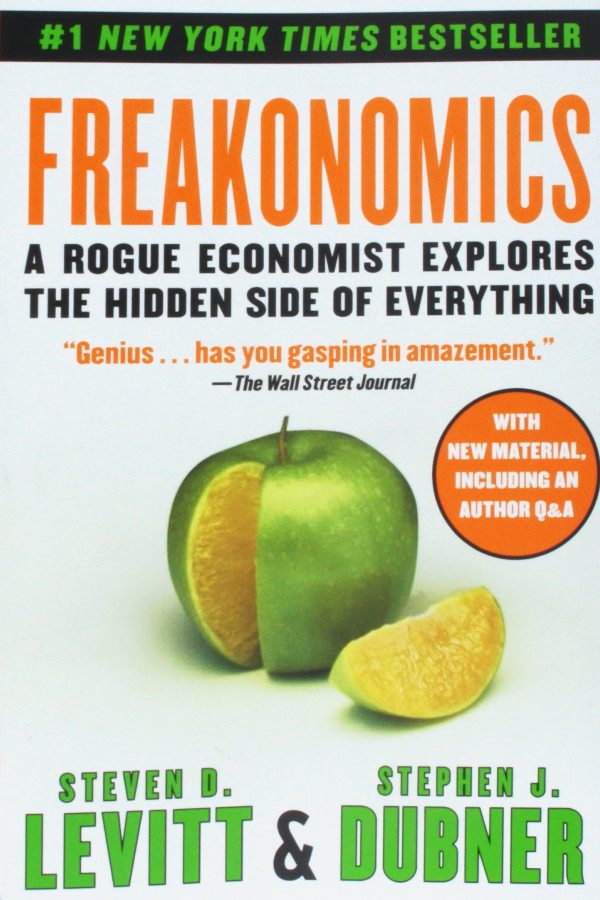< <
<
All
>
> >
Freakonomics Radio

 Episode 378: 23andMe.
Dubner interviews Anne Wojcicki, the CEO and co-founder of 23andMe - a genetic testing service marketed to consumers.
They talk about the benefits of large sample size, in particular with regard to the ability to calculate polygenic risk scores. Values like this can only be calculated with huge sample sizes since the individual effects are small and effects from other genes as well as random noise would overwhelm the signal in even fairly large samples. 23andMe has huge samples and full genetic data for all individuals so they are able to get at some of these values in a way that is not feasible in most data sets.
Despite their huge data sets, 23andMe's data is not ideal. They have fewer minority customers due to the inherent nature of what the word "minority" means, but also because many minority individuals have a distrust of medical testing due to past atrocities like the Tuskegee experiment. Whatever the cause, having more data for Caucasian customers means that the 23andMe service is inadvertently more accurate and useful for non-minorities (especially for detecting the polygenic risks mentioned above).
Lastly, they don't explicitly address it, but you can see how the difference between relative risk and absolute risk becomes important when interpreting results like those you get from 23andMe. What does it really mean to have a higher risk of a disorder? For example, your test may show a 150% higher risk of a disorder, but if that just raises your absolute risk from 0.0001% to 0.00025%, should you really be worried?
Episode 378: 23andMe.
Dubner interviews Anne Wojcicki, the CEO and co-founder of 23andMe - a genetic testing service marketed to consumers.
They talk about the benefits of large sample size, in particular with regard to the ability to calculate polygenic risk scores. Values like this can only be calculated with huge sample sizes since the individual effects are small and effects from other genes as well as random noise would overwhelm the signal in even fairly large samples. 23andMe has huge samples and full genetic data for all individuals so they are able to get at some of these values in a way that is not feasible in most data sets.
Despite their huge data sets, 23andMe's data is not ideal. They have fewer minority customers due to the inherent nature of what the word "minority" means, but also because many minority individuals have a distrust of medical testing due to past atrocities like the Tuskegee experiment. Whatever the cause, having more data for Caucasian customers means that the 23andMe service is inadvertently more accurate and useful for non-minorities (especially for detecting the polygenic risks mentioned above).
Lastly, they don't explicitly address it, but you can see how the difference between relative risk and absolute risk becomes important when interpreting results like those you get from 23andMe. What does it really mean to have a higher risk of a disorder? For example, your test may show a 150% higher risk of a disorder, but if that just raises your absolute risk from 0.0001% to 0.00025%, should you really be worried?
 Episode 391: America’s Math Curriculum Doesn’t Add Up .
Dubner hands the show over to his long-time collaborator, Steve Levitt, who discusses the history and current state of the US math Curriculum and what problems that entails.
The biggest point that Levitt presents is that while data analysis is becoming a vital skills for people in this modern society, math education is poorly designed to meet a goal of improving this skill. Instead, the math curriculum in the US focuses on algebra and geometry using a kitchen-sink approach whereby high schools students get overwhelmed with tons of procedures for special cases. Polls of college level instructors reveal that they wish schools instead focused on fewer topics, but in more depth.
The other topic Levitt investigates is how the US system can be changed - by examining how altering the incentives (a standard Freakonomics approach) may be done. His conclusion is that the best way to accomplish this would be to alter the standardized tests that teachers prepare students for - if these tests have data analysis instead of algebra then education will move to follow. He interviews David Coleman, the CEO of the College Board (which produces the SAT and AP exams) and they discuss the issue.
There is a lot more detail in the episode and its well worth listening to if you care about math education.
They also provides a nice set of math education links and resources at the end:
Episode 391: America’s Math Curriculum Doesn’t Add Up .
Dubner hands the show over to his long-time collaborator, Steve Levitt, who discusses the history and current state of the US math Curriculum and what problems that entails.
The biggest point that Levitt presents is that while data analysis is becoming a vital skills for people in this modern society, math education is poorly designed to meet a goal of improving this skill. Instead, the math curriculum in the US focuses on algebra and geometry using a kitchen-sink approach whereby high schools students get overwhelmed with tons of procedures for special cases. Polls of college level instructors reveal that they wish schools instead focused on fewer topics, but in more depth.
The other topic Levitt investigates is how the US system can be changed - by examining how altering the incentives (a standard Freakonomics approach) may be done. His conclusion is that the best way to accomplish this would be to alter the standardized tests that teachers prepare students for - if these tests have data analysis instead of algebra then education will move to follow. He interviews David Coleman, the CEO of the College Board (which produces the SAT and AP exams) and they discuss the issue.
There is a lot more detail in the episode and its well worth listening to if you care about math education.
They also provides a nice set of math education links and resources at the end:
- www.youcubed.org
- freakonomics.com/math
tl:dr, "Freakonomics Radio" is a great podcast - we recommend it".
Disclaimers:StatsExamples was not compensated in any way for this review.
StatsExamples has not communicated with the authors of Freakonomics.
StatsExamples does not have a financial relationship with the publisher.
StatsExamples will receive a small payment from Amazon if you purchase a book using the links above.
< <
<
All
>
> >
Connect with StatsExamples here
This information is intended for the greater good; please use statistics responsibly.
